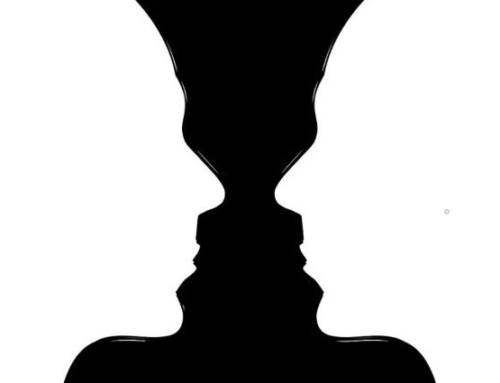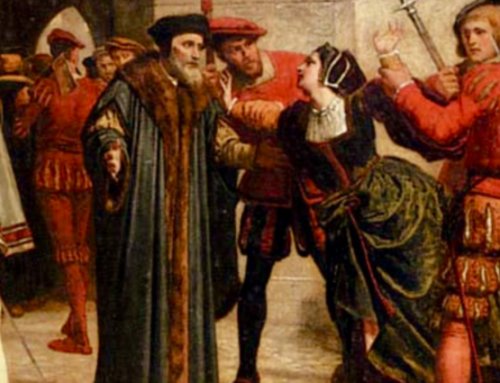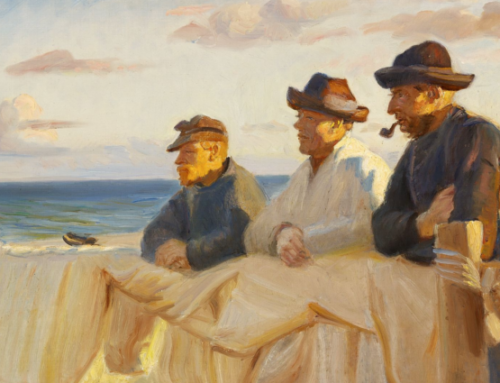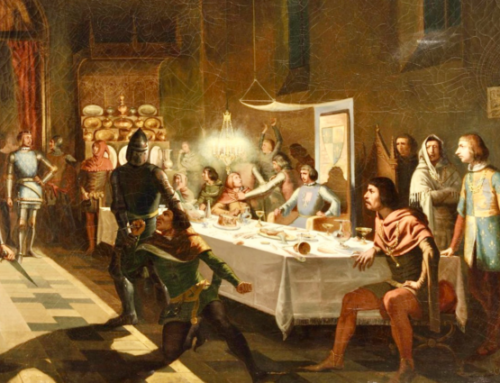The role of Harry and Meghan, the former Duke and Duchess of Sussex, was to be the almost fairy-tale models for a world in need of elite leadership. They were called to embody all that is excellent in the British nation so that others might strive to imitate them. But they have utterly failed in their duty.
 Most people are employed for what they do. Others find jobs for what they know. However, few people find their function exclusively in what they are.
Most people are employed for what they do. Others find jobs for what they know. However, few people find their function exclusively in what they are.
Of the three jobs, the last is by far the most important and difficult. The other two involve situations where individuals can rest from their occupations. The third job calls for persons to represent what they are at all times and places. They must live up to specific standards that define them and for which they are known.
Such was the case of Harry and Meghan, the former Duke and Duchess of Sussex, who once lived as part of England’s royal family. Their role was to be the almost fairy-tale models for a world in need of them. They were called to embody all that is excellent in the British nation so that others might strive to imitate them.
The Tragic Tale of Oprah Show
Most now know their tragic story. In the recent interview on Oprah Winfrey’s show, the couple tried to justify the abandonment of their role as models. They expressed instead the desire to live a contradiction. They want to lead an ordinary life while enjoying and cashing in on the notoriety that comes from their extraordinary role.
Many looked upon the interview with distaste. It was an exercise of woke victimhood as the couple accused the royal family of racism, elitism and other maladies. They railed against the monarchical system that demanded service and restraint. The two royals reveled in the freedom of defining who they wished to be.
Many might be tempted to write off the whole episode as proof of the rottenness of all elites. They might reason the world would be better off without them.
Representative Characters
Such a conclusion is at odds with the real world. People need heroic figures who can embody the best of humanity. There need to be people who set the standard. Such figures are capable of great deeds and actions. However, their main role is to unite, harmonize and elevate society by the power of their presence. Take them away, and society decays into mediocrity and sloth.
Indeed, sociologists recognize this innate need, and some identify these figures as what are called “representative characters.” As scholar Alasdair MacIntyre writes, such characters “are, so to speak, the moral representatives of their culture and they are so because of the way in which moral and metaphysical ideas and theories assume through them an embodied existence in the social world.”
“A representative character is a kind of symbol,” writes Robert N. Bellah. “It is a way by which we can bring together in one concentrated image the way people in a given social environment organize and give meaning and direction to their lives.”
True Elites Unify Society
Thus, Harry and Megan are meant to be representative characters. They should take upon themselves the sacrifice of being models for society. The privilege of being part of royalty is merely a platform from which they can better offer their disinterested service to all.
The role of true elites is to be representative characters that engage, encourage, coax and interpret all that is most excellent out of society. As for royals, they aim at such high standards that many often take them to be the stuff of fairy tales. That is why all levels of society find fulfillment in representative characters. Far from causing class struggle, these figures serve to unify society around sublime ideals. Their role is to sacrifice themselves for the common good of the nation.
Thus, the Queen commands the respect of everyone—even the two errant royals. Despite her shortcomings, she endures well into her nineties, representing the British nation with grace and dignity. She is a living symbol of stability, self-sacrifice, and decorum in a cold, cruel, and volatile world.
False Elites: Heroes to Victims
Postmodern society destroys the narratives that support representative characters. It encourages self-aggrandizement and success with no duties attached.
The Oprah interview demonstrated this well. It presented the model of false elites who hold a selfish and individualistic outlook with no objective standards of excellence. Everything is subjective and directed inward. The most important matters are emotional and passionate. It is all about self, not the serving of others.
When events eventually turn against these false elites, the protagonists turn against the system with resentment and bitterness. False elites no longer direct heroic actions. They whine about the injustice of the same system, which affords them so many privileges. The extreme effort of the hero is replaced by the easy sloth of the victim who demands everything.
Thus, many people find cause to denounce the swamp of false elites destroying society by the horribleness of their bad examples. These unrepresentative characters inspire and fool no one. Quite the contrary, false elites are like the Gospel salt that loses its savor. It is good for nothing but to be trodden underfoot, which is what the scorning multitudes do.
A Need for Good Elites
Thus, contrary to the populist spirit of the times, society needs good elites who can be those representative characters that sociologists claim are essential.
Society needs models, and youth need heroes. People are tired of ideological and partisan political agendas. There must be those who sacrifice for the common good.
Above all, this kind of society presupposes the help of God’s grace to overcome the weakness of fallen human nature. That is why true elites are naturally Christian. The supreme figure is Our Lord Jesus Christ, Who embraced the Cross and died on it to provide a divinely heroic model for all ages to come.
The Imaginative Conservative applies the principle of appreciation to the discussion of culture and politics—we approach dialogue with magnanimity rather than with mere civility. Will you help us remain a refreshing oasis in the increasingly contentious arena of modern discourse? Please consider donating now.
The featured image is a photograph of Prince Harry and Meghan Markle with other members of the royal family going to church at Sandringham on Christmas Day 2017. This file is licensed under the Creative Commons Attribution 2.0 Generic license, courtesy of Wikimedia Commons.







Always insightful John – love your articles
Harry and Meghan are both children of divorce and they each appear to have been scarred by its destructive force.
Harry is also a child of adultery having witnessed the painful suffering of his beloved mother following his father’s betrayal.
Harry cannot give to the public what he does not have to give.
In Meghan, he appears to have found someone who provides comfort and solace precisely because she comes from a family also divided by divorce and the wounds it inflicts.
I hope this couple works ceaselessly to provide the firm, enduring, and loving family unit their children will need to thrive.
If Harry and Meghan can achieve family unity, they will have provided the greatest of gifts to a broken world.
“Standards of excellence” indeed, any excellence at all offends the hard left. They resort to hate so fast because they know what they stand for and are outraged that they fail short of everything they claim to stand for.
I think there are many problems with the underlying axioms in this article. I would like to take the time to point out some of these issues because I believe that there are many rather dangerous assumptions underlying this seemingly harmless defense of an “elite” class.
Having models in society is good, but the idea that the British monarchy or anything like a British aristocratic society is a model is not something that the founding fathers would have agreed with at all, certainly not Benjamin Franklin, or Hamilton, or George Washington. The idea of the United States is antithetical to the kind of social organization found in a British aristocratic system. However, there has always been an anglophile tradition within the United States which was sympathetic to the British Imperial model and wanted to have its own imperial system in America. This class is historically represented by the Wall Street merchant banking families, Boston “Brahmins” and other types of interests, American Tories, “Royalists.” However, most of the founding fathers and the constitution were fundamentally opposed to such a notion and interests. The idea of a Republic represents an inherently anti-imperial outlook.
Also, Eugenics, as in blood lines, as strange and wrong as that sounds, is still a very real thing for many “elite” families like the British Monarchy. History has shown us rather conclusively that such thinking can lead to all sorts of unthinkable things. No society that accepts or chooses its leaders or models based on blood lines and “heredity” is very wise. And I don’t think such institutions should be confused with the idea of tradition or the founding of the United States. They are antithetical. Disowning one idea does not mean abandoning the other.
The idea of an elite ruling over the masses may be considered a “tradition” by some, but the reality is that leadership requires the consent of the governed, not the consent of some elite ruling class. It’s about content of character, not hereditary peers and monarchies. I can help but feel that the author is reacting to one extreme with another, much the like the French who after having seen the horrors of Jacobin anarchy, decided to crown an emperor, as if this would solve their problems. It didn’t work out very well…
And as far as the question of Christ is concerned, I think using Christ as an argument for the existence of the British Monarchy is quite rich. The idea of the trinity is the idea that each individual may act in imitation of Christ. The 15th century Renaissance was centered on the notion of imago viva dei and capax dei; that every individual was a living image of God. This is what got Europe out of a feudal form of society where previously 95% of people were illiterate and ruled over by an elite class that defined itself according to blood lines and ideas of wealth and heredity.
How is the individual a living image of God? From the Renaissance standpoint, the individual is an image of God not by flesh, but by their intellect–a divine spark. The purpose of a nation state–as opposed to an empire run by an oligarchy–is the development of this creative spark within every individual. This is what imperial systems reject and hate: A poorer class is not supposed to exhibit the same creative or intellectual ability as the “elites” and nobility. There is supposed to be an unbridgeable gulf between the kinds of classes.
However, this is not just some mere theological question. It also lies at the heart of the scientific method and all questions of fundamental knowledge. Einstein famously said,” “I want to know God’s thoughts – the rest are mere details.” This is ultimately a statement of scientific outlook, a statement on the nature of mind and the universe. In the Timaeus, when Plato discusses a scientific investigation of the universe, he begins with the idea that one has to put themselves in the mind of a creator or a “composer.” If the creator had the choice between crafting the universe as something more or less beautiful, Plato argues that he would have chosen to make his creation the most beautiful possible. Therefore, since beauty is more akin to that which has harmony and proportion rather than that which has less harmony and proportion, one can assume that the universe is constructed in such a manner that it is most beautiful i.e. has the greatest degree of harmony and proportion. As a result, Plato proceeds to then investigate and define the nature of such proportion and harmony as it is found in the universe, starting with musical proportion, which is key to understanding the organization of the stars, the orbits of planets—the heavens.
This represents the beginning of the Christian Platonic approach to science, which formed the basis of the Renaissance. On the other hand, the oligarchical outlook, which I feel the author is expressing in some degree, wittingly or not, says “forget about all these abstract notions, man is a brute. All he knows is his experience. As a result, science is merely the collection of sense-experience and the perfect mathematical formulas which can be derived from such experience. However, there is no knowledge of causes or reason knowable to man. That is for God to know…
Instead of a Platonic or Augustinian outlook, it appears that the author is more inclined to an Aristotelian notion of God where God is considered infinite and man finite, and therefore, based on Aristotle’s law of contradiction, God and Man are incommensurable in every possible way. So how is the relationship between the individual and God mediated for an Aristotle and Aristotelians, it’s through the “elect”, an “elite” class which has access to special knowledge and serves as the mediator for everything good and holy, which the masses by themselves can’t figure out.
Is not this kind Aristotelian approach the basis for the author’s argument about an elite class?
I could be wrong.
Excellent, insightful commentary from Mr. Horvat. At last someone who understands and values the need for a genuine elite, as distinct from the disgraceful, plutocratic cabal which brings the whole ideal of elitism into question.
It seems to me that many of our ‘elites’ are not fulfilling their roles responsibly; that includes our President and, may God help us, our Pope.
well written and very informative. it seems that the couple who gave up their titled position will find it difficult to attain any other suitable position; always now outside, looking in to what might have been where they could have changed their lot, to the betterment of themselves and many others.
share what you have been freely given; it works for all.